Sovereign Seeds: Reclaiming MENA’s Agricultural Future
Reviving local food systems and unlocking rural prosperity
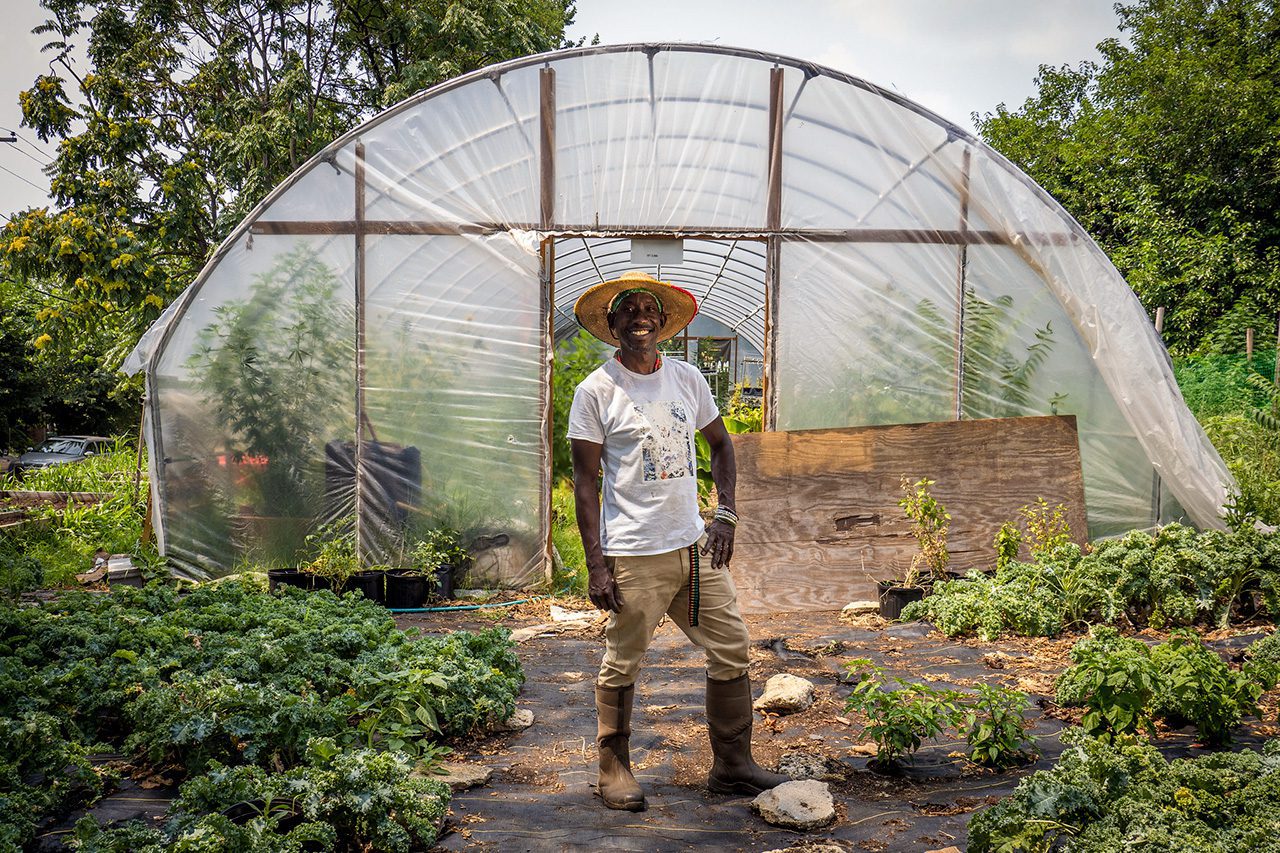
Plantation Heights Urban Farm Creator Preston Keres. Credit: Farm Production and Conservation
One dictionary defines a desert as “a dry, barren area of land, especially one covered with sand, that is characteristically desolate, waterless, and without vegetation.” Interestingly, the word derives from Middle English, via Old French, from the Late Latin desertum — meaning “something left to waste” — or the neuter past participle of deserere, which means “leave” or “forsake.” When we speak about resource deserts, we tend to picture the first definition, though I believe they are often more aligned with the latter.
In my opinion, we use this term far too loosely. By doing so, we risk obscuring the root causes — and therefore the solutions — to the so-called deserts that exist within our society and communities.
This week, I encountered the term in an article discussing the extraction — and some might even say extortion — carried out by pharmacy benefit managers (PBMs). Through the intentional application of different pricing for institutional versus small-business pharmacies, PBMs have created “pharmacy deserts”: large urban and rural communities without an accessible pharmacy within a reasonable distance. But these pharmacy deserts didn’t emerge naturally, as the first definition of a desert suggests. Nor are they the natural outcome of a free-market society. If not for two key factors — structural racism and decades of lax enforcement of antitrust laws (some would argue for the past fifty years) — many of these deserts wouldn’t exist. Across the United States, communities would have retained their local pharmacists, professionals who knew their neighbors and could provide healthcare services tailored to the specific needs of their local enclave. It’s clear this phenomenon aligns more closely with the second definition of a desert.
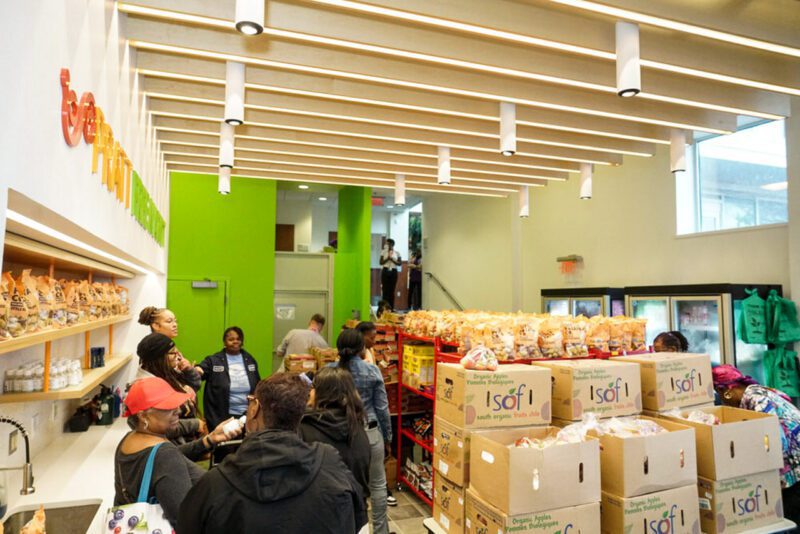
Image Courtesy of Pratt Free Market
The term desert is even more commonly applied to areas, often low-income communities — both urban and rural — that have limited or no access to fresh foods, particularly unprocessed, local fruits, vegetables, dairy, and similar essentials. You’ve likely heard or even used the term “food desert” to describe these neighborhoods. A wise friend, who has spent his entire career in the food industry, recently enlightened me on the harm this term can inflict. He and other entrepreneurs are tackling this issue by increasing access and working to restore the abundance that once existed in these communities, each through innovative approaches with potential for scalable, far-reaching impact.
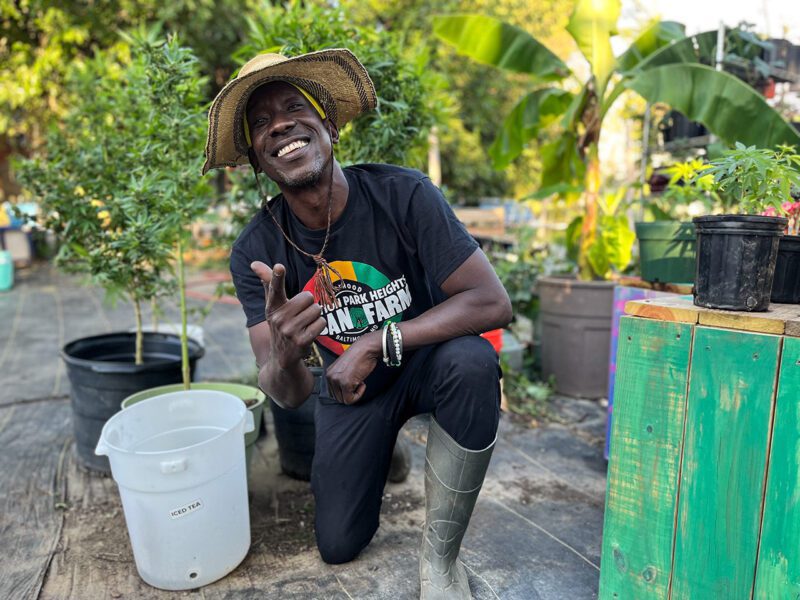
Image Courtesy of Plantation Park Heights Farm
One of my proudest roles in the nonprofit sector was serving on the board of Philabundance, the Delaware Valley’s largest hunger-relief and food-rescue organization. There, I learned the importance of getting food directly to those experiencing food insecurity through various means — free farmers markets, home-delivered boxes for seniors, and food pantries. Today, in Baltimore, a new pathway has emerged: the Pratt Free Market (PFM), conceived and launched by the remarkable M’Balu “Lu” Bangura, Chief of Equity and Fair Practices at the Enoch Pratt Public Library. As Lu describes it, libraries are places where everyone feels welcome and where “products” (books!) and services are accessible to all, without question or condition. Inspired by this ethos, she helped establish a grocery store within a library branch that embodies these values. Twice a week (with expanded hours and days planned), PFM at the Southeast Anchor Library offers what the library calls “a judgment-free, accessible, modern, and bright, FREE grocery store.”
We risk obscuring the root causes — and therefore the solutions — to the so-called deserts that exist within our society and communities.
PFM will soon add a ‘Charlie Cart,’ a mobile unit used for culturally relevant food demonstrations and cooking classes, and the library is developing additional programming based on the requests and needs of the largely immigrant community it serves. The food offerings are culturally aligned and primarily sourced from local providers like Leftover Love, the Maryland Food Bank, Plantation Park Heights Farm, What the Sprout, and Blessings of Hope, among others. PFM is staffed almost entirely by volunteers from across Baltimore, led by Coordinator Jessica Russell. These volunteers? There’s no age or geographic restriction on who can serve, and PFM is already benefiting from a wonderfully diverse volunteer base. Like the now-rare local pharmacist, this grocery store not only knows its neighbors but is being co-created by and for them, offering products and services that reflect their personal needs and preferences.
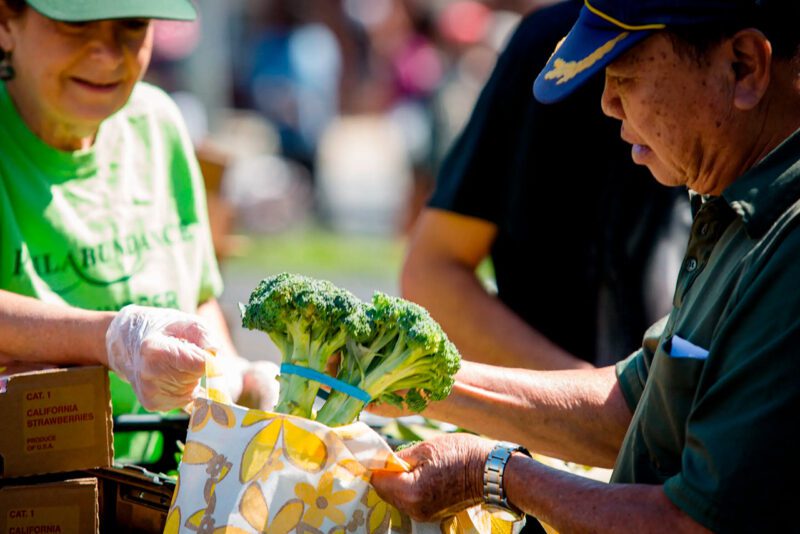
Image Courtesy of Philabundance
Currently, PFM is funded by private grants and donations, with applications for state and local funds in progress. As an impact investor, I envision a future where these funds could be bolstered through recyclable debt financing — perhaps for the suppliers supporting PFM or for establishing similar spaces. In a neighborhood where 17% of residents are food-insecure, and in a city where roughly 20% of neighborhoods lack reliable access to fresh groceries, the significance of this “third space” cannot be overstated. In Baltimore — a city that once pioneered discriminatory redlining legislation, setting a precedent for its spread nationwide, a primary driver of food insecurity and restricted access to fresh food (let’s leave behind the term “food desert”) — it’s especially vital to model a new, inclusive approach. The Pratt Free Market shows immense promise, and with increased funding, it can continue to scale and refine this innovative concept.
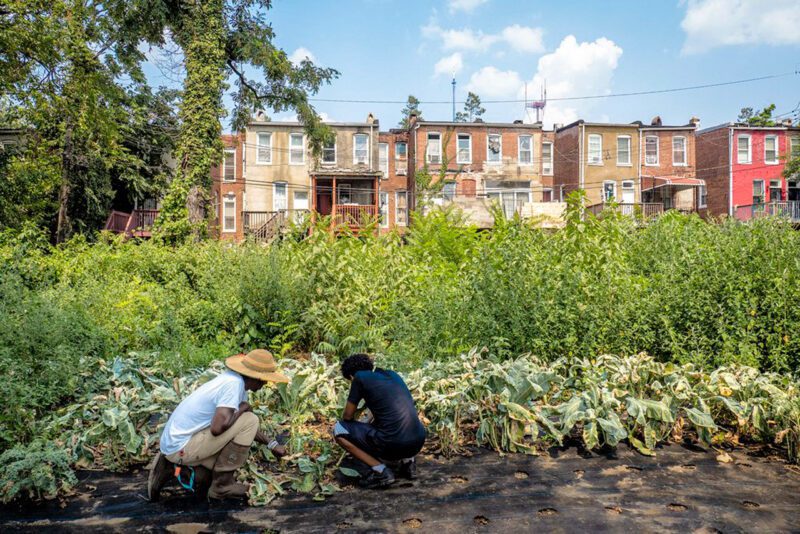
Image Courtesy of Plantation Park Heights Farm
The friend who inspired me to challenge the term “food desert” is Bob Reusche. Together with his partner Molly Riordan, he founded Philly Cooks for Philly, where I proudly serve on the Advisory Board. Philly Cooks has ambitions that extend beyond simply providing access to healthy, fresh, locally-produced foods. They aim to foster workforce and local economic development while delivering meaningful environmental benefits. Every year, Philadelphia sources 13–15 million prepared meals for schools, childcare programs, and other publicly funded meal initiatives. Currently, these meals are produced out of state and must be frozen for the journey, meaning not only that Philadelphia tax dollars are being spent elsewhere, but also that meal production occurs outside the city and the carbon footprint from transporting these meals is unnecessarily high. Philly Cooks intends to address these challenges by establishing a large central commissary kitchen in Philadelphia that will:
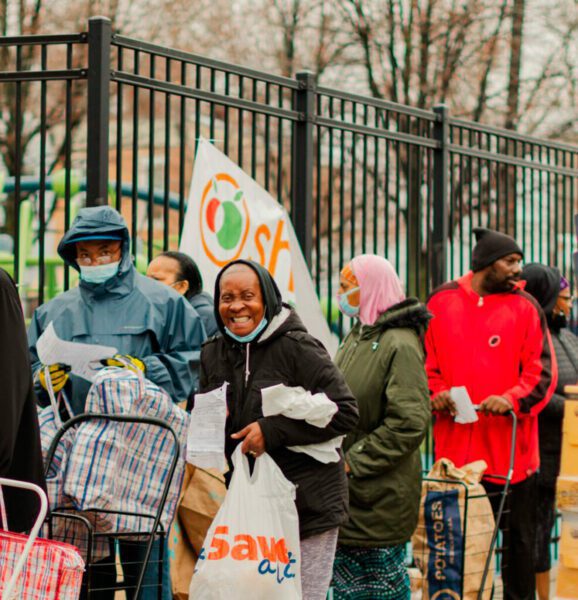
Image Courtesy of Blessings of Hope
The impact investing opportunities here are both straightforward and immediate. Once the commissary is operational, guaranteed federal reimbursements for the meals it produces will cover ongoing operating costs. This makes the primary need in the short and medium term one of capacity-building funds — specifically for pre-development financing and construction. Additionally, there may be valuable investment opportunities to support programming and expansion long after launch. Undoubtedly, there are numerous ways to leverage capital tools and partners to bring this concept to life and ensure its sustainability.
When everyone has access to healthy, local, whole foods — and the means (time, resources, and cultural alignment) to enjoy them — we all benefit. Our communities become healthier, our families grow stronger, our children perform better in school, and our employees and colleagues are more productive, all contributing to a stronger economy and a more vibrant society. Let’s work and invest together to eliminate not only the term ‘food deserts’ but the very existence of low-access communities.
After all, food is love, and we could all use more of both.
Related Content
Deep Dives

Featuring
Clarisse Awamengwi
IE Correspondent
July 17 - 12:00 PM EST

Featuring
Russell McLeod
July 24 - 12:00 PM EST
RECENT
Editor's Picks
Webinars
News & Events
Subscribe to our newsletter to receive updates about new Magazine content and upcoming webinars, deep dives, and events.
Become a Premium Member to access the full library of webinars and deep dives, exclusive membership portal, member directory, message board, and curated live chats.
At Impact Entrepreneur, we champion fearless, independent journalism and education, spotlighting the inspiring changemakers building the Impact Economy. Diversity, equity, sustainability, and democracy face unprecedented threats from misinformation, powerful interests, and systemic inequities.
We believe a sustainable and equitable future is possible—but we can't achieve it without your help. Our independent voice depends entirely on support from changemakers like you.
Please step up today. Your donation—no matter the size—ensures we continue delivering impactful journalism and education that push boundaries and hold power accountable.
Join us in protecting what truly matters. It only takes a minute to make a real difference.
Love the insights shared here! It’s always great to see more focus on community empowerment and sustainable solutions. At PatriotPDraz Foundation, we’re working on similar initiatives, especially in education and healthcare, to help underserved communities thrive. If you’re interested in learning more about our work, check us out at https://www.patriotpdraz.com. Keep up the great work